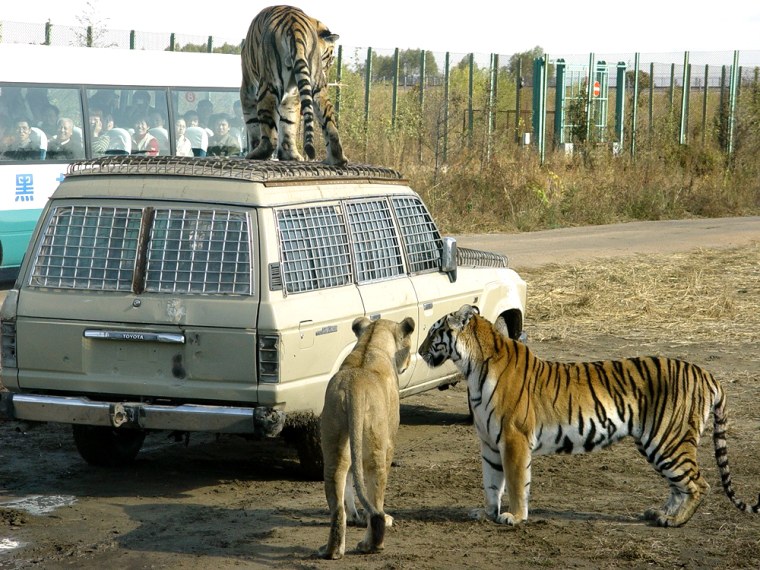China is seeking Indian support for plans to farm tigers for their body parts, Indian officials said Thursday, expressing opposition to a move that conservationists warn could devastate the rapidly dwindling wild tiger population.
China is expected to launch a bid to amend a 14-year-old ban in trading in tiger parts at an international convention on wildlife trade in the Netherlands next month, and officials from Beijing have held several meetings with their Indian counterparts in recent days.
"In our talks the Chinese have said they feel that the ban has not helped in conserving the species. They think bans on wildlife trade have not helped any species," said Rajesh Gopal, head of Project Tiger, a government program charged with preserving the big cats in India, home to the world's largest remaining wild tiger population. Gopal took part in the meetings.
China's embassy acknowledged that a seven-member delegation was in New Delhi to discuss "environmental and forestry cooperation," but refused to provide any additional details.
China committed to the ban on trading in tiger parts under the Convention on International Trade in Endangered Species of Wild Fauna and Flora, or CITES, in 1993. But now it reportedly wants the prohibition amended to allow the sale of parts from farmed tigers.
Pelts and traditional medicine
Tiger pelts are highly valued in places like Tibet, and their bones and body parts prized in traditional Chinese medicine.
Conservationists say Beijing is under pressure from the owners of tiger farms in China, where there are an estimated 4,000 captive tigers.
Gopal said the Chinese also feel conserving tigers in their natural habitat has not been effective and that farms are the best way to preserve the species.
"We disagree with that. We say it has definitely helped us to preserve the tiger species," Gopal said, adding that India, along with other signatories to the convention, were unlikely to support the Chinese position at the CITES meeting in Amsterdam next month.
Conservationists say that permitting farmed tiger parts to be sold would spur poaching because it is cheaper to kill a wild animal than to raise a tiger on a farm and the parts are indistinguishable.
It would also likely stimulate demand for tiger products, they said.
TRAFFIC, a monitoring program set up by WWF and the World Conservation Union, warned that the success of China's ban — which has reduced trade in tiger parts so that they were found in only 3 percent of traditional medicine shops — would "almost certainly be undone if China's markets for tiger products were reopened."
More tigers held than in wild
India is already struggling to preserve its own tigers from constant poaching and habitat loss.
In 2005, Indian officials were forced to acknowledge that poaching had wiped out every tiger in one of India's premier reserves.
Officials from a number of governments estimate that there are 3,000 to 5,000 wild tigers left in the world. However, conservationists believe these estimates are grossly exaggerated.
About 9,000 exist in captivity, the majority in the United States and China.
"There are simply too few tigers left in the wilds of Asia to risk reopening trade of any kind from any source," said Belinda Wright, the head of the Wildlife Protection Society of India. "We dare not risk an entire species for the financial gain of a handful of investors."
